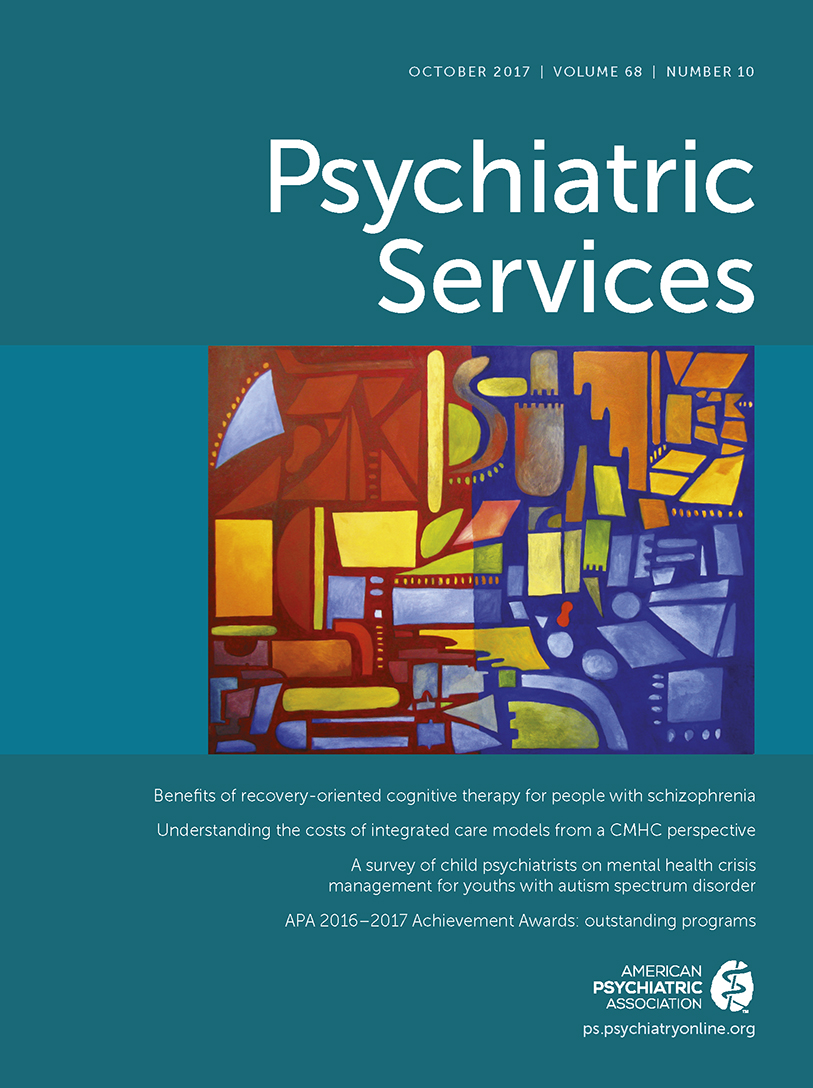Bronze Award: Empowering Primary Care Physicians to Better Assess and Manage Pediatric Mental Health Problems
Pediatricians, family physicians, and other primary care providers (PCPs) are trusted health care experts, and parents often seek their help when a child displays psychiatric symptoms. Yet PCPs often feel ill-prepared to treat mental illnesses, which now account for up to 60% of pediatric visits. Yet in many parts of the country, shortages of child psychiatrists make referrals extremely difficult, if not impossible.
In 2010, the departments of child psychiatry at the University at Buffalo, Columbia University Medical Center/NY State Psychiatric Institute, Hofstra Northwell School of Medicine, the University of Rochester, and SUNY Upstate Medical University in Syracuse joined together to form Child and Adolescent Psychiatry for Primary Care (CAP PC), a child psychiatry access program covering the vast majority of children across New York State (NYS), including many living in underserved areas. Funded by the NYS Office of Mental Health as a regional provider for Project TEACH, the program provides real-time, free phone consultation for PCPs and help with linkage and referral to specialists. Face-to-face evaluations, including access by telepsychiatry, are also available.
Just as important, CAP PC offers a menu of continuing medical education (CME) offerings to bolster PCPs’ ability to assess and manage mild to moderate mental health problems. Providing both consultation and education creates a synergy that neither component alone could achieve, according to CAP PC Project Director David L. Kaye, M.D., from the University at Buffalo. “It’s simple,” he said, quoting the adage, “Give a man a fish and you feed him for a day; teach a man to fish and you feed him for a lifetime.”
In recognition of its commitment to empowering PCPs to better address pediatric mental health problems in the medical home, CAP PC was selected to receive APA’s 2016–2017 Bronze Psychiatric Services Achievement Award.
Rapid Access to Consultation
Access to specialty mental health services is limited in many parts of NYS, according to Dr. Kaye. “Many counties are without a single child psychiatrist,” he said.
Unlike more fully integrated programs that place mental health providers in primary care settings, CAP PC provides rapid access to consultation with offsite experts. The participating departments of psychiatry operate a single, dedicated, toll-free phone number, which PCPs and other pediatric prescribers in 38 counties of the state can call for consultation about children and adolescent patients with mental health problems. The teams at each site take turns operating the phone line, with each team providing coverage one day per week. In selected cases, CAP PC provides a one-time face-to-face or telepsychiatry consultation.
Team members at each site consist of two to three senior child psychiatrists on faculty at their respective institution and a liaison coordinator who is responsible for helping PCPs link patients with appropriate referrals. The five teams work closely together, with weekly conference calls to coordinate planning and assure communication and consistency across the program in clinical cases. Services are provided through a contract with NYS OMH that was recently extended through 2020.
So far, 2,157 PCPs have registered for the consultation program, which has provided psychiatric consultations for 6,989 children and adolescents. Together, the partnering institutions provide collaborative mental health services for 41 of the state’s 61 counties, representing 80% of the state’s population.
The most common problems PCPs call about are anxiety, inattention, sadness and depression, aggression, and oppositional-defiant behaviors. About 20% of calls involve children with developmental disabilities, including autism spectrum disorders, and roughly 25% of calls involve assistance with referral and linkage to other resources. Seventy percent of calls come from upstate regions of the state, where shortages of mental health providers are particularly acute and where PCPs have more readily embraced a pediatric mental health agenda.
Increasing Confidence and Competence
The centerpiece of CAP PC’s formal education program has been a six-month mini-fellowship, developed by the Resource for Advancing Children’s Health (REACH) Institute (www.thereachinstitute.org). The mini-fellowship consists of three days of in-person training in evidence-based assessment and treatment of several common problems experienced by children. The weekend training is followed by 12 biweekly case-based conference calls for 10 to 12 PCPs, facilitated by CAP PC child psychiatrists and PCPs. The biweekly conference calls are a critical chance to apply knowledge from the three-day course to their current patients. To date, 662 PCPs have completed the fellowship, earning over 18,000 CME credits.
Several shorter education programs are also offered, including evening programs on topics not covered by the mini-fellowship (such as autism, substance abuse, eating disorders, and school refusal) telecast live to all five program hubs. CAP PC also has provided Webinars and a five-hour on-site program at PCP offices that cover ADHD, anxiety, depression, and aggression. All CAP PC programs are provided free of charge to PCPs and include CME credit.
Sensible, Sustainable Integrated Care
A key ingredient of the program’s success is the seamless collaboration among the five university partners. By working together, the university-based teams have been able to maintain high quality and consistency of services regardless of geographic location, said Dr. Kaye. The call line is open Monday through Thursday from 8 a.m. to 7 p.m. and Friday from 8 a.m. to 5 p.m. Face-to-face evaluations, when necessary to support the PCP in managing a case, are provided within two weeks of initial contact. Education is emphasized—CAP PC is now the largest provider of CME of any CPAP in the country.
The program is proof that CPAPs can be sustained, well received, and highly effective. “Compared with fully integrated models, CPAPs may be a better choice for providing coverage to large areas with many PCPs at relatively small costs,” said Dr. Kaye. Such programs may be the most sensible and sustainable “first step” for collaborative care models, now and for the foreseeable future, he added.



